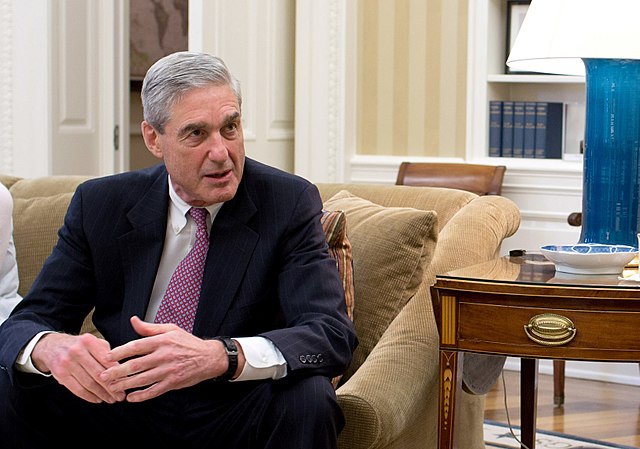Attorney General William Barr released the principle conclusions of Special Counsel Robert Mueller’s findings on Sunday, March 24. The four-page summary concluded Special Counsel Robert Mueller was unable to establish “coordination” between the Donald Trump campaign and the Russian Government.
Mueller, also tasked with investigating potential obstruction of justice, did not make a prosecutorial decision on the matter. Attorney General Barr, in conjunction with Deputy Attorney General Rod Rosenstein, concluded the events did not rise to obstruction of justice.
Republicans, including President Trump, have declared victory following the release of Barr’s findings. Following the findings, Trump declared “total exoneration.”
Barr’s letter did not include the same terminology regarding potential obstruction of justice, stating that “…while this report does not conclude that the President committed a crime, it also does not exonerate him.”
The Mueller investigation into the Trump campaign’s potential “collusion” with Russia was a much publicized topic in political circles and the topic of heavy speculation across cable news, in particular.
Robert Mueller, a former head of the FBI and a life-long Republican, was tapped to lead the investigation into “collusion” and potential obstruction of justice, after President Donald Trump fired previous FBI director, James Comey. Comey’s firing set off the probe after concerns surfaced that the president may have abused his power by firing director Comey following what the Republican director perceived as retribution for his refusal to pledge an oath of loyalty to the president.
Comey’s termination was backed up by a letter by Deputy Attorney General Rosenstein. Rosenstein justified the decision, noting how the FBI had departed from Department of Justice policy during the investigation into former Secretary of State Hillary Clinton’s use of a personal email server while handling sensitive information. Comey had become a lightning rod since the beginning of his tenure, angering both Democrats and Republicans, at different points.
Concern grew when President Trump appeared in an interview with NBC’s Lester Holt, explaining the decision to fire Comey while citing the ongoing Russia probe. A day after dismissing Comey, President Trump hosted Russian foreign minister Sergey Lavrov and then-Russian ambassador Sergey Kislyak in the Oval Office. During the discussion, the President seemed to indicate he dismissed director Comey to end the Russia investigation.
“I faced great pressure because of Russia. That’s taken off,” the president said in an interview.
The Mueller inquiry was seen by many as a partisan and politically-motivated investigation. The president consistently called the probe a “witch hunt.”
Democrats were not satisfied with Attorney General Barr’s summary, noting how Barr came into the job with a broad view of presidential powers. Many in the house majority point to an unsolicited, 19-page memo William Barr sent to the Department of Justice on June 8, 2018 concluding “the probe was fatally misconceived.” Barr admitted to sharing the memo to President Trump’s lawyers before joining the justice department.
Republicans on capitol hill, on the other hand, feel vindicated by the investigation’s findings. They also believe these findings have validated their skepticism towards the news media, which has spent months speculating over the Mueller investigation, in spite of the relative silence of the investigators.
On Rowan University’s campus, self-described Democrats and Republicans find themselves in very different places. Republicans feel relieved to put the specter of the Mueller investigation behind them and hope to seize on the Trump administration’s accomplishments. Sophomore political science major Jason Brooks gave his take on the situation.
“The findings are what we have all known all along, the President has never colluded with Russia and has been innocent of such allegations the entire time this probe has gone on,” Brooks said. “It’s time for the American people to focus on the work he has done and will continue to do on behalf of Americans.”
Meanwhile, Democrats remain skeptical of Attorney General Barr and the investigation’s principal conclusions.
Connor Schmiegel, a senior communications major and vice president of the Rowan University Democrats, weighed in on the matter.
“Barr has made too many statements in support of presidential powers and of this president that we cannot just take his word for this investigation. We know that Jared Kushner participated in talks with Russians, we know that Michael Flynn overturned sanctions in favor of Russians, we know that Kushner and Donald Trump Jr. asked Russians to give them dirt on Secretary Clinton,” Schmiegel said. “And we know that Trump wanted Comey to drop the Russian investigation. Knowing all this, we can’t just say ‘nothing to see here, go on with your lives.’”
Despite their differences in opinion, both agreed it is difficult to opine on the investigation’s conclusions without seeing the underlying report.
“I feel that the American people should not make any conclusions based on the summary of the report, until the report in its entirety is released to the American public,” Brooks said.
Additionally, they both agreed it is best to take cable news with a grain of salt.
“Media organizations are mostly always going to focus on the latest buzz with politics,” Schmiegel said. “Is that a good thing? Well, no… We all fall victim to this and it has become the responsibility of the consumer to not take cable news at face value.”
For questions or comments about the story email [email protected] or tweet @thewhitonline.com.

























































































































































!["Working with [Dr. Lynch] is always a learning experience for me. She is a treasure,” said Thomas. - Staff Writer / Kacie Scibilia](https://thewhitonline.com/wp-content/uploads/2025/04/choir-1-1200x694.jpg)









































